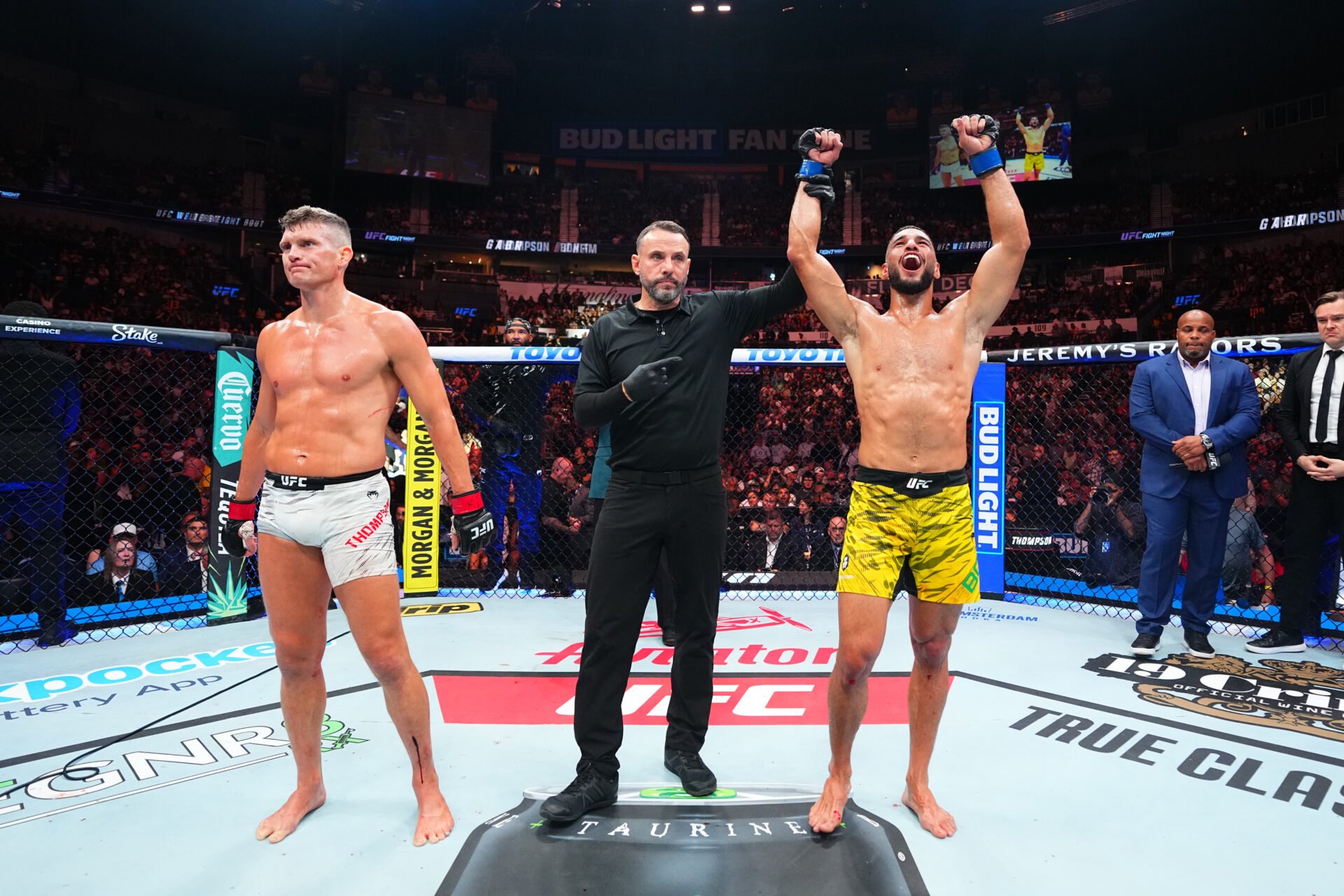
The co-main event at UFC Nashville delivered high drama, though perhaps not in the manner fans anticipated. Veteran fan-favorite Stephen `Wonderboy` Thompson faced off against the ascending Gabriel Bonfim. While the technical clash promised striking versus grappling fireworks, the outcome was decided not by a definitive finish, but by the judges` scorecards, leading to a split decision victory for Bonfim that instantly polarized the mixed martial arts community.
Bonfim`s strategy was clear from the outset: mitigate Thompson`s renowned striking prowess by relentlessly pursuing takedowns and cage control. Throughout the contest, Bonfim actively engaged Thompson in grappling exchanges, succeeding on multiple occasions in putting the karate specialist on his back or against the fence. However, the subsequent action during many of these grappling sequences often lacked sustained, significant offensive output or damage. Positional control was frequently gained, but transformative ground-and-pound or clear submission threats were less prevalent than the attempts to secure and maintain position itself.
This dynamic presented a familiar, complex challenge for the ringside judges tasked with scoring the bout under pressure. Ultimately, two officials, Mike Bell and Dave Tirelli, scored the bout 29-28 in favor of Gabriel Bonfim. The third judge dissented, seeing the fight differently and awarding it to Stephen Thompson. The resulting split decision awarded Bonfim the victory, much to the audible displeasure of a significant segment of the live audience at the Bridgestone Arena, whose immediate reaction was a cascade of boos, a clear expression of disagreement with the official verdict.
The dissatisfaction wasn`t confined solely to the Nashville crowd. Almost immediately following the announcement, professional fighters, coaches, and analysts took to social media platforms to voice their opinions. A recurring theme in their commentary and critiques centered heavily on the criteria by which the rounds were judged, specifically questioning the weight given to Bonfim`s grappling control versus Thompson`s defense and moments of effective striking or threat creation while defending. The sentiment among many was that attempted takedowns or brief periods of positional control, particularly if they did not lead to substantial damage, submission attempts, or complete neutralization of the opponent for a significant duration of the round, should not necessarily outweigh effective striking or counter-offense.
This outcome serves as a potent, albeit somewhat predictable, case study in the perennial debate surrounding MMA judging criteria. How much value should be assigned to control and positional wrestling, even without significant offense, versus impactful strikes, visible damage, and defensive maneuvering? While official rules provide a framework aiming for objectivity, the subjective interpretation of what constitutes `effective grappling` versus `effective striking` in real-time under the chaotic conditions of a fight remains a complex task. Decisions like this one, where rounds appear to be awarded based significantly on securing positional control even when it yields limited offensive output (what some critics might less formally term `stalling` or `half-successful` attempts if they don`t flow into offense), highlight the fine line judges must walk and the discrepancies in interpretation that can arise.
For Stephen Thompson, a fighter whose distinguished career has unfortunately seen its share of close and sometimes controversial decisions influenced by grappling-heavy opponents and subsequent scoring, this loss adds another challenging chapter to his narrative. For the sport of MMA at large, the Nashville co-main event underscores the ongoing, perhaps never fully resolvable, challenge of developing a judging system that consistently aligns official scoring with the collective perception of the fight`s impact and effectiveness, proving once again that sometimes, the toughest opponent is indeed the one holding the scorecard.











